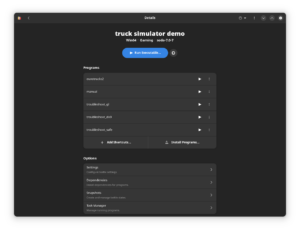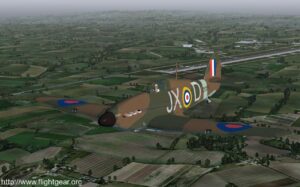Godot 4.0 is an upcoming release of the game engine, gaining popularity among game developers in recent years. This new version of Godot is expected to impact the game development industry significantly. It could encourage developers to migrate from other game engines like Unreal and Unity. In this article, we will explore some of the critical features of Godot 4.0 and why it has the potential to be a game-changer for the industry.
Introduction:
The game development industry has been dominated by two major game engines: Unity and Unreal Engine. Game developers widely use these engines to create games for PC, consoles, mobile devices, and VR platforms. However, there is a growing demand for alternative game engines that offer more flexibility, speed, and ease of use.
Godot is an alternative game engine that has recently gained popularity among game developers. It is an open-source, free-to-use game engine that offers a wide range of features and tools for game development. Godot has been praised for its simplicity, flexibility, and ease of use, making it an attractive option for indie and AAA game developers.
Key Features of Godot 4.0:
Godot 4.0 is the next major release of the game engine, and it is expected to bring significant improvements and new features. Here are some of the critical features of Godot 4.0:
Vulkan Rendering:

Godot 4.0 will introduce a new rendering backend based on the Vulkan API. Vulkan is a modern, cross-platform graphics API that offers high performance and low-level control over the graphics pipeline. With Vulkan rendering, Godot 4.0 will be able to deliver high-quality graphics with better performance and efficiency than before.
Visual Scripting:
Godot 4.0 will also introduce a new visual scripting system, allowing developers to create game logic and behaviour without traditional coding. Visual scripting is a more accessible way of creating game logic and behaviour, and it can be beneficial for non-programmers and beginners.
Improved 3D Physics:
Godot 4.0 will bring significant improvements to its 3D physics system. The engine will introduce a new physics engine based on the Bullet physics library, offering more accurate and realistic physics simulations. The new physics engine will also support soft body physics and deformable objects, allowing for more realistic and immersive game environments.
Improved Audio System:
Godot 4.0 will introduce a new audio system based on the OpenAL library. The new audio system will offer better performance and quality than the previous one and support more advanced features like spatial audio and occlusion.
Why Godot 4.0 Could be a Game-Changer:
Godot 4.0 has the potential to be a game-changer for the game development industry for several reasons:
Open-Source and Free-to-Use:
Godot is an open-source game engine, meaning it is free to use and can be modified by anyone. This makes it an attractive option for indie developers and small studios that may need more money to pay for expensive licenses for other game engines like Unity or Unreal.
High-Quality Graphics:
With the introduction of Vulkan rendering, Godot 4.0 will be able to deliver high-quality graphics with better performance and efficiency than before. This will allow developers to create more visually impressive games without sacrificing performance.
Easy to Use:
Godot has been praised for its simplicity and ease of use, which makes it an attractive option for beginners and non-programmers. With the introduction of visual scripting, Godot 4.0 will become even more accessible, allowing more people to create games without traditional coding skills.
Improved Physics System:
The improved physics system in Godot 4.0 will allow developers to create more realistic and immersive game environments. This will be especially useful for games that require accurate physics simulations, such as racing games, platformers, and puzzle games.
Community Support:
Godot has a growing community of developers passionate about the engine and actively contributing to its development. This community support can be invaluable for developers starting out or facing technical challenges.
Should I use Godot 4.0 or 3?
Using Godot 4 or 3 depends on your specific needs and circumstances. Here are some factors to consider:
Stability: Godot 4 is still in development and has yet to be considered stable, while Godot 3 has been stable for some time. If you need a stable game engine that you can rely on, then Godot 3 may be the better option.
Compatibility: Godot 4 introduces several new features and changes that may not be compatible with existing projects or plugins. If you have an existing project that you want to continue working on, stick with Godot 3.
Features: Godot 4 introduces several new features, such as Vulkan rendering and improved physics, that may be essential for your project. Godot 4 may be the better option if your project requires these features.
Community Support: Godot 3 has a larger and more established community of developers, which means more resources and support are available. If you are new to Godot or game development in general, Godot 3 may be the better option for getting started.
Conclusion:
Godot 4.0 could be a game-changer for the game development industry. Its open-source, free-to-use model, high-quality graphics, improved physics system, and easy-to-use interface could attract many developers away from other game engines like Unity and Unreal. The introduction of visual scripting will make game development even more accessible to non-programmers and beginners, further expanding the potential user base for Godot. As Godot 4.0 approaches its release date, it will be interesting to see how the game development community receives it and how it impacts the industry.




